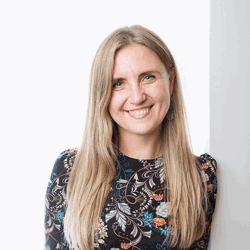Eligibility by applicant
Researchers only
- You must be a researcher working at a UK or Irish university or Public Sector Research Establishment (PSRE), and have a PhD or equivalent experience, at any level of seniority, from PhD students to professor. If you are a PhD student, your viva must be held before the start the Fellowship or the offer will be withdrawn.
- The university or PSRE must intend to form a spinout in which you will be the CEO or COO, at least in the immediate future. This is not a programme to explore if you want to spin out or not – you should already have decided that is the preferred option for commercialisation, above licensing. The programme does not contractually oblige you to spinout – but that should definitely be your aim.
- The university or PSRE should not expect to have an equity stake in the company that is greater than 50% unless they can demonstrate some form of additional private investment into the spinout, beyond what is normally expected of a host (i.e., grant funding and performing the standard TTO support function do not count as additional investment)
Recent graduates only
- You must have graduated from your very first university degree, of any type, in any subject, and from any university, no earlier than 1 January 2021. If you are still a student, you may apply but must graduate before 31 May 2026 or the offer will be withdrawn.
General criteria
For applicants
- You must be currently based in the UK or Ireland.
- You cannot be an awardee of our Regional Talent Engines program.
- You are expected to play the leading role in the development of the business, as the CEO or COO for at least the duration of the programme. Our support is only worthwhile if you will be able to put the learning into practice in the immediate future, which can only be achieved if you are in a leading role.
- You are expected to spend the vast majority of your working time pursuing the objectives of the programme. Academics cannot teach during the programme, but supervising PhDs and supervising research projects directly related to the innovation may continue.
- You can work part-time on the programme if your personal circumstances require, but you cannot hold other forms of employment or pursue other activities. Graduates may have a part-time job to support themselves, as long as it can flex around the diary commitments of the programme.
- You may have been through an accelerator programme before, but should not be on one during this programme.
For the technology / innovation
-
You must have a protectable, IP-rich engineering and/or technology innovation which does not strongly rely upon using existing IP developed by others outside of your team i.e. if you are using and AI agent, competitors should not be able to replicate your solution by also sing such an AI agent. Engineering is defined in its broadest sense, encompassing a wide range of diverse fields. Combining existing technologies and applying them in a new area does not count as sufficient innovation to apply – there must be an inventive step which is protectable.
- You must have directly contributed to the development of the innovation, either as the inventor or part of the research and development team, and have a clear route to access the necessary intellectual property rights.
- The innovation must be at Technology Readiness Level 4 or above – i.e., proven to work in a lab/ideal environment. As a maximum, it should not be currently available to the market other than as a prototype/minimum viable product with limited sales.
- You must expect to be able to produce a minimum viable product within the next three years, or else you are too early to benefit from what the programme offers and should apply later.
For the business
- The business may or may not be already incorporated. If it has, it must have raised less than £500,000 in private investment, or else we take this as evidence that you do not need our help – see our Shott Scale Up Accelerator programme instead. You may have received any amount of grant funding.

